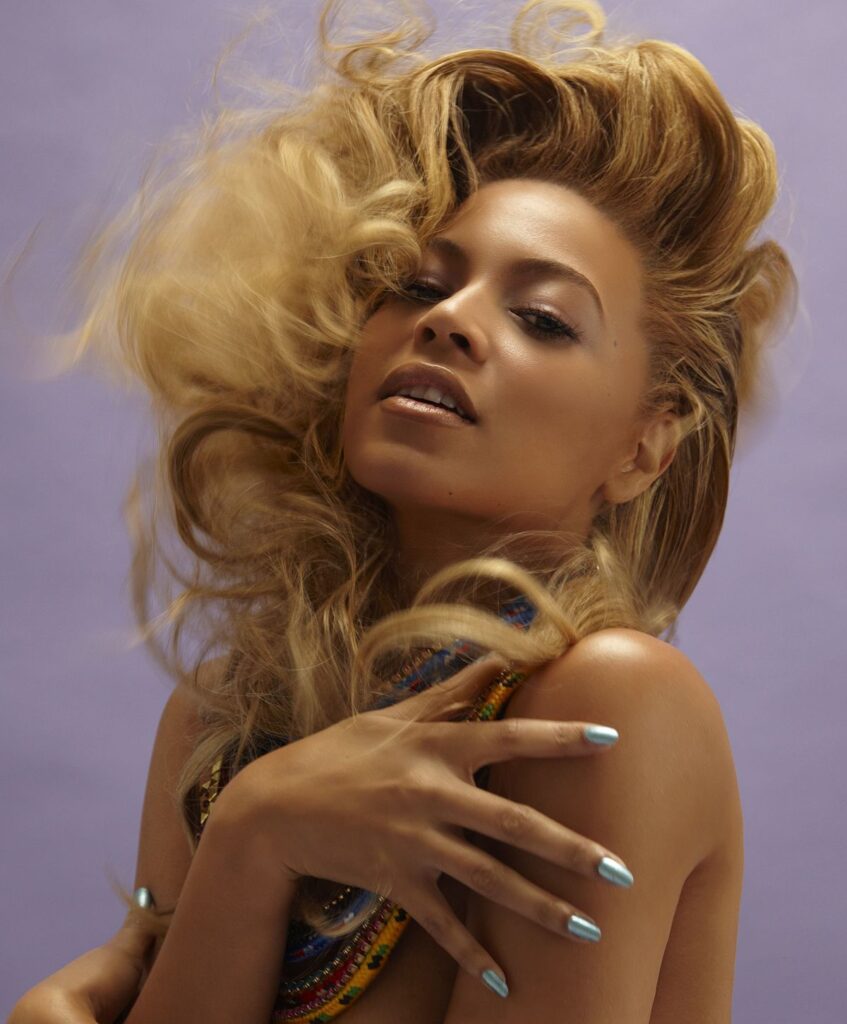This summer, Beyoncé dropped her hit album “Renaissance.” WAMH Events Coordinator Nii-Ayi Aryeetey ’23 delves into the album’s joyous and dynamic tracks, heavily inspired by Black music genres, including House, Ballroom, and disco.

When Beyoncé dropped “Break My Soul,” the lead single for her new album “Renaissance,” fans worldwide rejoiced and geared up for a new era of music from the music superstar. The single — an uptempo, club-inspired house song — left many wondering what her new album would sound like. Some were worried that she was following in the footsteps of Drake, who recently released “Honestly, Nevermind,” a House-influenced club album that many listeners found uninspired and vapid. But I was excited by the positive message and infectiously groovy production of “Break My Soul,” which seemed to signal a new direction for Beyoncé involving off-kilter, raucous samples and a dance-focused sound. Thankfully, Beyoncé delivers this abundantly on all 16 songs of “Renaissance.”
“Renaissance” takes strong inspiration from the past five decades of Black dance music. In particular, the tracks have a special focus on genres pioneered and popularized by the Black LGBTQ community: house music, ballroom, Miami bass music, and disco. While Beyoncé is no stranger to the influence of hip-hop, “Renaissance” leans into its influences by featuring Beyoncé herself rapping far more than any of her past albums have. Famous producers such as No I.D., A.G. Cook, Mike Dean, The-Dream, and Beyoncé herself collaborated to create the unique sound of “Renaissance,” which sports transitions between tracks as smooth as one continuous DJ set.
The album’s first track, “I’m That Girl,” sets the braggadocious, upbeat, and celebratory tone of “Renaissance.” It opens with a sample — a vocal chop of Princess Loko’s verse in the song “Still Pimpin’” by Memphis rap pioneer Tommy Wright III — which acts as a preview of the album’s celebration of the history of Black club music. The beat of the song is also influenced by reggaeton, innovatively mixing the traditional dembow drumbeat with Memphis rap sampling techniques.
The next track, “Cozy,” is a highlight of the album and the first of many songs to feature samples from famous Black LGBTQ people. In a famous speech, transgender reality star Ts Madison talks passionately about her confidence as a Black woman. Before the second chorus, we can hear Madison saying “I’m dark brown, dark skin, light skin, beige, fluorescent beige, bitch, I’m Black,” which is an comical yet empowering quote celebrating all kinds of Black people. The sample resonates with the lyrics of the song — particularly the chorus, which voices the confident message, “comfortable in my skin, cozy with who I am.”
“Alien Superstar,” the third track on “Renaissance,” is one of the most exciting and creative tracks on the album. The song takes influence from the ballroom genre, which is characterized by quick tempos, hard-hitting and rhythmic drums, and often shouted or rapped vocals (usually performed by MCs at ballroom events). Ballroom culture originated as a key facet of underground LGBTQ American culture in the 1960s. In lively, densely packed “ballrooms,” crowds watched heated competitions as participants strutted and posed, performing a style of dancing called voguing. The track also features a sample of Barbara Ann Teer, a Black writer who founded the National Black Theatre in Harlem.
Another highlight of the album is “Church Girl,” which blends a sample of Black gospel group The Clark Sisters with the fast tempos and heavy bass of bounce music — a genre that originated in New Orleans in the 1990s and has more recently been popularized by gay rapper Big Freedia. Bounce music is frequently sampled on “Renaissance,” notably in “Break My Soul,” the house-influenced lead single, and “Virgo’s Groove,” an ode to Beyoncé’s zodiac sign characterized by an infectious disco house beat.
After “Virgo’s Groove” is “Move,” a song featuring Jamaican supermodel and musician Grace Jones and up-and-coming Nigerian singer Tems. The track immediately excited me, beginning with Beyoncé shouting “Move out the way, I’m with my girls and we all need space!” The track takes influence from afrobeats, a modern genre originating in West Africa that mixes hip-hop with traditional West African sounds.
The last quarter of this album was as captivating as the first. One highlight is “America Has a Problem,” a song that sounds like modern hip hop, despite actually belonging to the electro genre, which reached its heights in the 1980s. The track begins with a sample of a song of the same name by Miami bass artist Kilo Ali. Miami bass is a relatively unknown hip-hop subgenre that had a major impact on the sound of popular rap music in the 1990s and 2000s — yet another example of the arsenal of Black music influences deployed throughout “Renaissance”.
Beyoncé dabbles again in the ballroom genre with “Pure/Honey,” a two-part song that transforms midway from a ballroom song into a funky house track. The track once again makes reference to famous Black LGBTQ figures, beginning with samples of drag queen and musician Kevin Aviance and ballroom commentator Kevin JZ Prodigy. The track ends with samples of ’90s drag queen Moi Renee. Beyoncé proclaims the mission of this album: “we jump in the car, quarter tank of gas, world’s at war, low on cash.” Amidst a time of uncertainty and suffering, especially for Black Americans, “Renaissance” is an album that wholeheartedly celebrates and promotes Black joy.
“Renaissance” ends with “Summer Renaissance,” an ode to Diana Ross, the Queen of Disco. The song heavily samples Ross’ famous song “I Feel Love,” a definitive disco song that is commonly refered to as a gay anthem. It is an effective ending to the album, a confident victory lap that leaves the door open for the next chapter of Beyoncé’s musical career, whatever styles it may involve. In fact, before the album was even released, Beyoncé revealed that “Renaissance” is the first part of a three-part musical project that she developed during the early days of the Covid-19 pandemic. The album acts as a reprieve from the difficulties of the pandemic, including the prejudice that has intensified in the years since the pandemic began. “Renaissance” is a joyous, exciting, and much-needed celebration of queer Black culture, and I am excited to see what the next two parts of Beyoncé’s project will explore.
